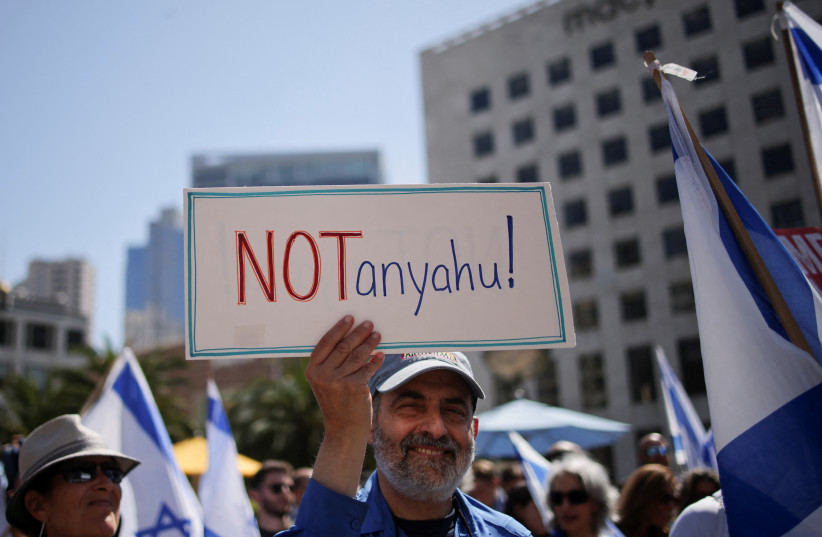A group of Reform and Conservative rabbis are planning to protest against Israel in front of the UN this Friday. They will claim that their protest is directed against Israel’s duly elected prime minister, Benjamin Netanyahu, for his government’s support of judicial reform — which has divided the Israeli people.
But let there be no mistake about it: this protest will be seen by Israel’s enemies — and there are plenty of them at the UN — as an attack against Israel by American Jews.
It would be different if the protests took place in front of the Israeli embassy or consulate or even in front of the hotel where Netanyahu is staying, as some are scheduled to take place. But the UN is the central locus of hatred against Israel, which is condemned by the General Assembly and other bodies more frequently than all the other nations of the world combined.
The nation-state of the Jewish people is accused — and convicted — of apartheid, genocide, ethnic cleansing, and being undemocratic, while other nations that are actually guilty of these crimes and sins are given a pass. Now these rabbis will be giving credibility to those blood libels against Israel by falsely claiming that the proposed judicial reforms will end democracy in Israel. I do not recall them protesting at the UN against the Palestinian leader for claiming that Hitler murdered Jews because they were money lenders, or Iranian Holocaust deniers, or the many anti-democratic Arab and Muslim leaders. Their anger is directed only at the one nation that is singled out for double standard condemnation by the UN.
First, the claims by the rabbis are categorically false, reflecting an abysmal ignorance of the role of judicial review in Western democracies governed by the rule of law. I am personally opposed to most of the proposed reforms, and if I were asked to vote either yes or no on the package as a whole, I would vote no. I believe that Israel is better off with today’s imperfect system of judicial review than with the even less good proposed reforms. But that yes or no decision is not the only, or even most likely, option. Compromise is possible, and Israel’s excellent president, Isaac Herzog, is working tirelessly to achieve a compromise that moderates on both sides can live with. But extremists are both sides are rejecting reasonable compromises because they are benefiting from the protests and counter-protests that strengthen their bases. The provocative and divisive protests at the UN will make compromise even more difficult.

Israel's Supreme Court is the most powerful in the democratic world
I have been studying, teaching, litigating, and writing about judicial review for more than 60 years. I can state — and I challenge anyone to dispute this — that the current Israel Supreme Court is the most powerful in the democratic world. No other court — including in the US, Great Britain, and other Western democracies — can overrule legislative or executive decisions based on lawsuits brought by ordinary citizens who are not individually harmed by these decisions. Other courts require what is known as “standing” to bring “cases and controversies.” Other courts do not strike down the decisions of duly elected and appointed executive officers on the grounds of unreasonableness, even extreme unreasonableness. They leave it to elected officials to decide what is reasonable in a democracy.
Many academic critics of the breadth of judicial review in Israel argue that it is the unelected, somewhat elitist, judiciary that compromises pure democracy. I tend to disagree. I generally support the current system, though would favor some modifications if I were an Israeli voter. I would not favor the broad overhaul advocated by the current government. But the reality is that even if all the proposed reforms were enacted — and I fervently hope and believe they will not be — Israel would then resemble the Netherlands, Great Britain, and New Zealand more than Hungary and Poland.
Israel will remain among the handful of the most democratic nations in the UN regardless of how the controversy over judicial reform plays out because it will be resolved by democratic processes. This includes the weekly protests, which have generally been models of organized objections to controversial government policies, especially as compared to France, the US, and other democracies. The decision about judicial reform will and should be made by Israeli citizens, not by American rabbis, complaining to Israel’s enemies at the UN about a complex issue regarding the role of the Israeli Supreme Court in the governance of its citizens.
